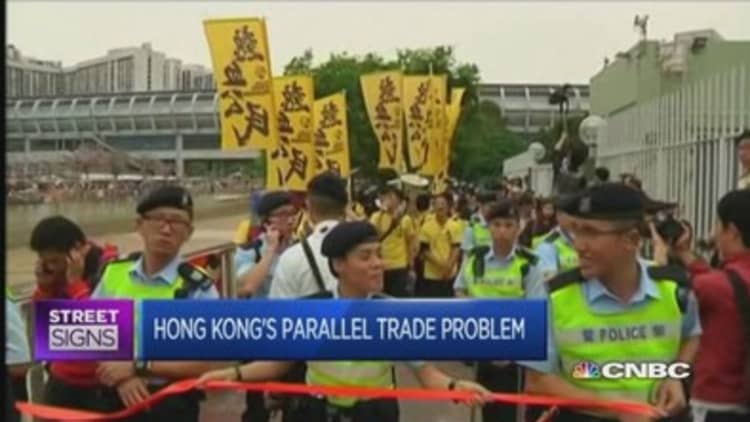Hong Kong's labor pool may start to shrink sooner than expected, according to a new report, which could set the stage for protracted low economic growth.
"Hong Kong's working age population is expected to post almost no growth over 2015 and 2016 before beginning to decline from 2017 onwards," Morgan Stanley economists said in a recent report. Working age is typically defined as individuals aged 15 to 64.
The forecast marks a significant change after the labor force averaged 0.9 percent annual growth over the past decade. It also means the city's demographic issue is more urgent than previously thought. Back in November, Secretary for Labor & Welfare Matthew Cheung said the city's labor force of 3.59 million would only start to decline after 2018.
"Worryingly, this projection of weak demographic trends is taking place even with a relatively optimistic assumption about net migration trends, suggesting that the underlying population dynamics will deteriorate at a far more rapid pace," the report said.
The problem is worsened by the fact that Hong Kong's fertility rates are consistently at the very bottom percentile in CIA World Factbook rankings.
Moreover, the bank expects the city's age dependency ratio - the proportion of older dependents to the working-age population - to climb to 42 percent by 2020 from 35 percent presently. Hong Kong's ratio is already the second-highest in Asia after Japan.
Impact on economy
A declining working age population translates into a shrinking talent pool, which typically slows production and boosts wage costs.
"With the population ageing, the size of the labor force is set to decline, posing a threat, if not drag, on economic growth and putting pressure on government revenue," a government-issued report said last year.

"The availability and cost of labor will therefore make Hong Kong a less attractive place for businesses," Morgan Stanley added, noting that it will hurt the flexibility of labor markets in adjusting to changing macroeconomic conditions.
Read MoreHK housing fix: Good, but not good enough
The bank warns that Hong Kong's productivity growth will have to accelerate in order to offset the impact from slowing labor inputs on gross domestic product.
What's being done
The government drew praise for addressing the labor shortage in its annual budget presentation last month. Financial Secretary John Tsang announced a slew of new incentives to increase the number of professionals in several sectors like retail and financial services.
"At this time of talent shortage and critical skills gaps, the Government's initiative to launch a three-year pilot scheme for insurance and asset and wealth management services is welcomed," said Peter Yu, director of Randstad Hong Kong, in a statement following the budget.
Others advocate a more direct approach: importing manpower. The Hong Kong General Chamber of Commerce has long called for allowing more overseas workers - especially within the constructor sector - to meet the government's target of expanding housing units over the next decade.

